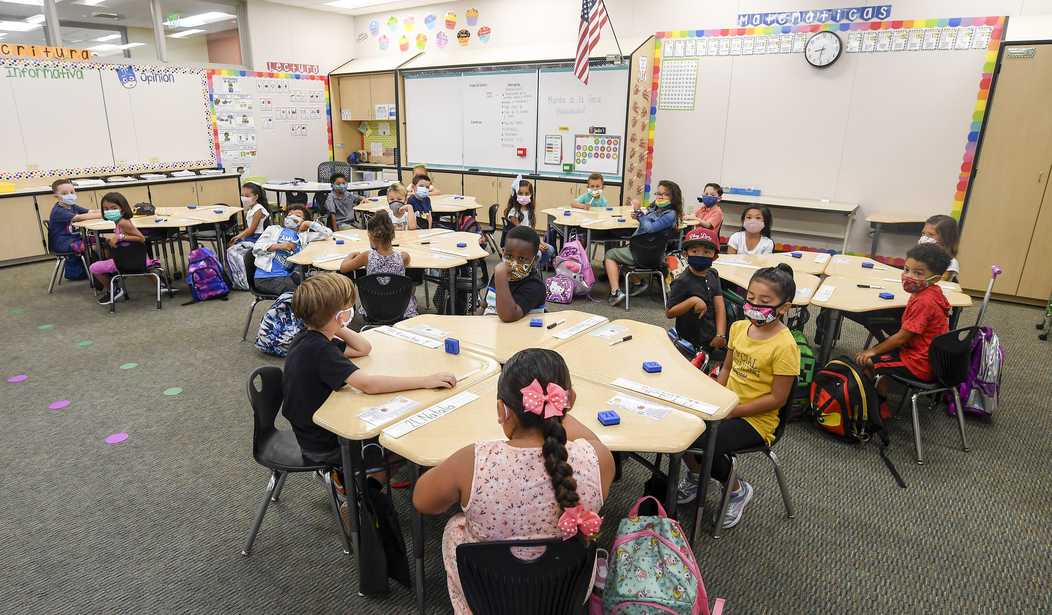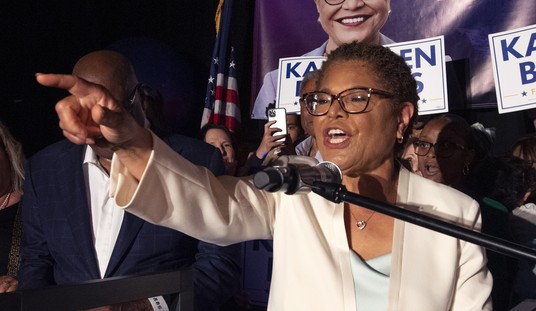We can expect to see much wailing and gnashing of teeth coming from the anti-parental rights crowd over the rest of the year. You already witnessed the collective meltdown the hard left experienced when Florida Gov. Ron DeSantis signed the Parental Rights in Education bill into law two weeks ago. Now, more states are reportedly set to follow suit with similar bills of their own.
In fact, at least a dozen states are working with new legislative proposals designed to prevent teachers from instructing young children on matters pertaining to sexuality and gender identity. These laws, which will almost certainly be labeled “Don’t Say Gay Bills” by the anti-parental rights crowd, will likely have slight differences, but the overall impact will be the same. Indeed, they are already starting to freak out.
Arjee Restar, assistant professor of epidemiology at the University of Washington, told NPR:
“The institutionalization of these bills is an overt form of structural transphobia and homophobia, and it goes against all public health evidence in creating a safe and supportive environment for transgender, nonbinary, queer, gay and lesbian youths and teachers to thrive.”
She added: “There should be no room for transphobia and homophobia – especially in the classroom.”
Of course, like her comrades, she did not bother to explain how preventing teachers from presenting far-leftist ideas on sexuality and gender identity would somehow prevent schools from “creating a safe and supportive environment” for members of the LGBTQ community.
Alabama and Ohio are considering a measure closely mirroring Florida’s law, which prohibits instruction on sexuality and gender identity to children younger than seven years old.
Arizona’s legislature is considering a bill changing sex-ed curriculum to focus on biological sex instead of gender identity.
Iowa’s state Senate is advancing a proposal requiring parents to opt-in to instruction related to gender identity.
Louisiana and South Carolina have introduced proposals that would limit instruction on sexuality or gender identity in certain grades and forbid it in others.
Missouri, Indiana, and Kentucky are considering measures prohibiting gender or sexual diversity training in public schools.
Oklahoma is looking at removing books from school libraries that discuss “the study of sex, sexual lifestyles, or sexual activity.
Tennessee is considering legislation that would remove books and curricula “that promote, normalize, support, or address lesbian, gay, bi-sexual, or transgender issues or lifestyle.”
The debate over gender and sexual issues in classrooms is only going to heat up as time goes on and these states start passing some of these laws. It is probable that the conversation will become even more heated than it did when the Florida law was being advanced in the state legislature. Indeed, Disney is still warring with Gov. DeSantis over legislation. How much crazier will this get when more than a dozen states consider laws that would further restrict the ability of teachers to present far-leftist ideas on sexuality and gender in the classroom?
Even further, what about laws like Iowa’s proposal requiring schools to obtain consent from parents before teaching their kids about these matters? This will add even more fuel to the fire as one of the ways progressives have been able to expose children to their teaching on these topics is by counting on parents’ ignorance. Indeed, most schools require the parent to proactively opt their children out of these teachings. In many cases, districts don’t bother to ensure that parents are even aware this material is being presented in the first place.
Iowa lawmakers are not the only ones who believe requiring parents to opt-in to this teaching is a good idea. Rep. Jeff Van Drew (R-NJ) is working on legislation that would compel all schools to obtain written consent from parents before presenting their children with teachings related to gender and sexuality. If this bill gets to the floor, the debate might become even more intense given that this would be a federal solution.
But what is important to remember is that Democrats are on the losing side of this issue. Most of the public agrees with Florida’s law despite the deceptive narrative the activist media has been peddling. This will probably be the case when each of these states introduces its measures. The fact of the matter is that most people believe parents should decide how their children are educated. Progressives’ attempts to cut parents out of the process will not go over well with the electorate. But for some reason, they will try anyway, won’t they?













